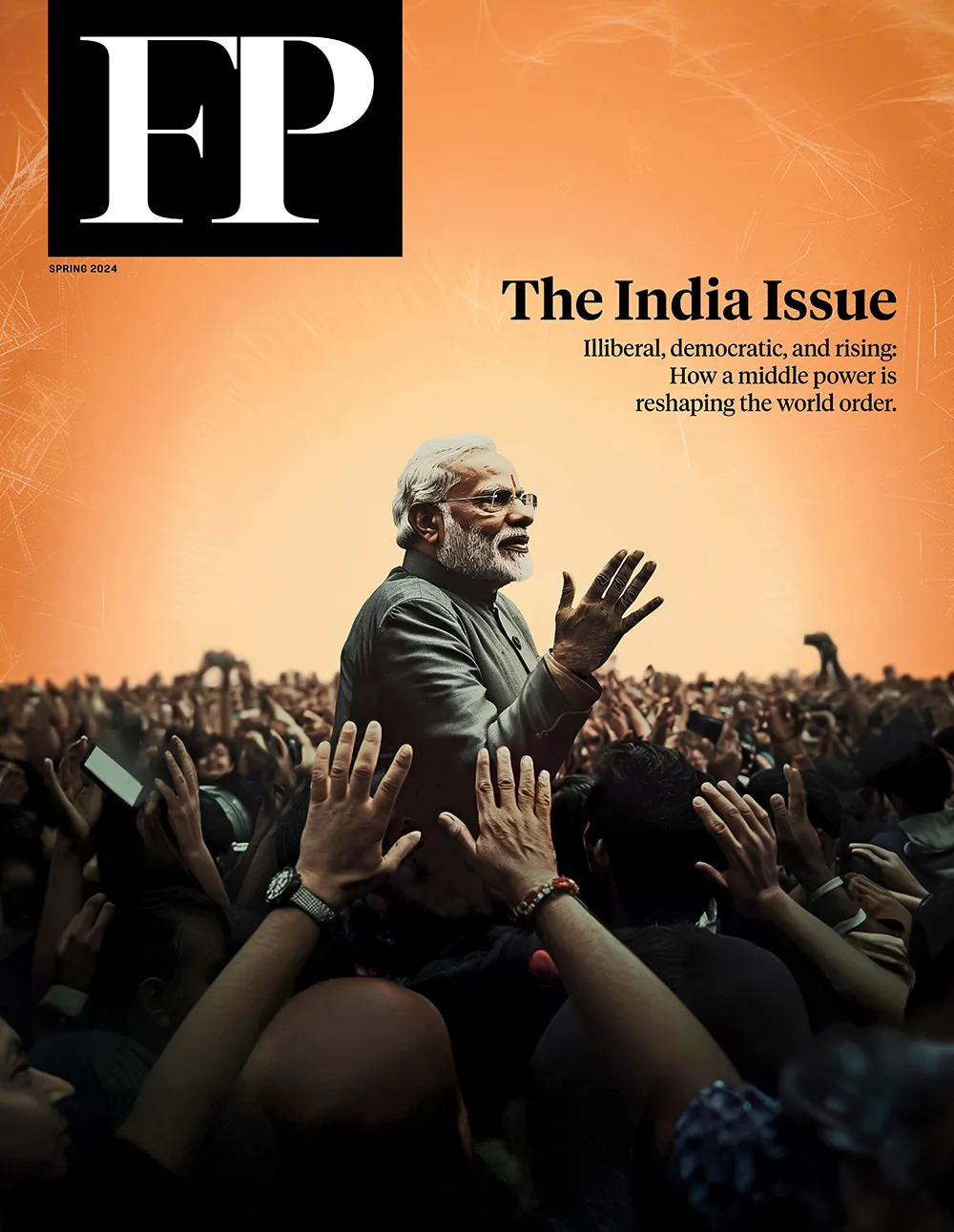How Not to Fix the U.N. Human Rights Council
The Trump administration wants reform. But putting Israel above all other priorities is a big mistake.
The Trump administration wants to reform the U.N. Human Rights Council. But it cites two concerns that would require conflicting strategies to address. It needs to sort out its priorities if it expects to make any progress.
The Trump administration wants to reform the U.N. Human Rights Council. But it cites two concerns that would require conflicting strategies to address. It needs to sort out its priorities if it expects to make any progress.
On one hand, it wants to improve the council’s membership to strengthen its willingness to address the world’s most serious abuses. On the other hand, it wants to abolish the council’s longstanding special agenda item on the Israeli-occupied Palestinian territories. If the administration insists on elevating its defense of Israel above all else, it risks undermining an essential institution for the global defense of human rights — instead of strengthening it.
The 47-member Human Rights Council, based in Geneva, is the U.N.’s leading human rights body. As with any intergovernmental institution, its effectiveness depends on rallying the votes of its members. Sometimes it falls short: It has neglected, for instance, Egypt’s draconian four-year crackdown to crush all dissent and Venezuela’s decimation of its once-vibrant democracy. But often it succeeds. The most recent session of the council, in September, adopted important resolutions on, among other subjects, Myanmar’s ethnic cleaning of its Rohingya population, Syria’s targeting of hospitals and other civilian institutions, the Saudi-led coalition’s bombing and starving of Yemeni civilians, and South Sudanese fighters’ slaughter of civilians because of their ethnicity.
The council was founded in 2006 to replace the U.N. Human Rights Commission, which had become a victim of its own success. The commission’s criticisms were so stinging that many abusive governments flocked to join it in an effort to avoid criticism of themselves and their ilk.
The U.N. General Assembly sought to remedy this membership problem by articulating broad standards for eligibility, requiring, at least in theory, that members “uphold the highest standards in the promotion and protection of human rights.” It also determined that members should be chosen through elections in the assembly that, it was hoped, would weed out the most abusive governments.
The system, while hardly perfect, has resulted in several particularly inappropriate candidates either being rejected through a vote (Belarus, Azerbaijan, Sri Lanka) or withdrawing their candidacy rather than face a humiliating defeat (Syria, Iraq).
Over time, however, a disturbing trend has become the norm. Council rules leave the proposal of membership candidates to regional groups of governments, and many regions propose only the same number of candidates as positions available to it, largely circumventing the need for a vote and enabling serial rights violators to be elected by default. Theoretically, a majority of the General Assembly could still vote against an awful candidate, depriving it of the majority required for election, but that has proved far more difficult than a positive vote for a better candidate.
There have been exceptions to these uncompetitive elections, such as last year’s competitive slate of Eastern European candidates, which led to the defeat of Russia while it was bombing Syrian civilians in eastern Aleppo. But more common have been the “closed” or uncompetitive slates that have seen the likes of Burundi, Saudi Arabia, and Egypt elected as council members.
Changing this practice is feasible. Any effort to improve the council’s membership should begin by pressing regional groups to nominate better candidates — states that largely respect human rights and cooperate with U.N. monitoring systems — and to propose enough candidates to permit a choice.
But Western governments would have to begin by living up to these principles themselves. For the election held last month, the Western regional group itself proposed the same number of candidates, Australia and Spain, for the two positions available to in that round. Western governments say they prefer uncompetitive slates to avoid the horse-trading needed to win election, but that encourages other regions to propose uncompetitive slates as well — the best vehicle for abusive governments to win council membership.
Beyond improving the council’s membership, the Trump administration also wants to end the special agenda item, known as Item 7, for the Israeli-occupied Palestinian territories — the only situation in the world to have a permanent council agenda item devoted solely to it. Abusive practices in Gaza and the West Bank clearly deserve scrutiny and condemnation, but that can be accomplished through the regular agenda items used to address right-abusing situations in the rest of the world. However, changing the council’s established agenda to eliminate Item 7 would require amending the council’s working procedures. That would risk initiating a constitutional debate about all of the council’s procedures, which could open a Pandora’s box.
That is because if the council’s working procedures are suddenly ripe for re-evaluation, several abusive governments would put forward their own “reform” agenda, too. For example, when the council’s procedures were originally being drawn up, some sought to increase the voting threshold needed to condemn an abusive government to two-thirds of the council’s members rather than the current simple majority — a significantly higher hurdle. They also sought to limit the independence of the council-appointed experts, who are often the most uninhibited voices reporting on government abuse. And they tried to restrict participation in council debates by nongovernmental human rights groups, which are often the best source of information about government practices.
In today’s environment of ascendant autocracy, seconded by Trump’s seeming view of multilateral rules as an invasion of sovereignty, if there were a general reassessment of the council’s working methods, there is no guarantee that these regressive steps could be avoided. Any of them would greatly weaken the council as an effective defender of human rights.
If the Trump administration is determined to address Item 7, there are less dangerous ways to do it. Most obviously, it could diminish Item 7’s significance by simply encouraging governments to ignore it and to address rights abuses in the Israeli-occupied territories through general agenda items.
The problem is that for Israel and certain of its supporters, the Item 7 controversy may really be only a stalking horse for a larger goal. Knowing that one way or the other the council will still criticize Israel’s persistent rights violations under its 50-year occupation, some Israel proponents want foremost to discredit the council. From that perspective, the risk of undermining the council is worth it — perhaps, even, the point — because it would make it easier to dismiss the council when it inevitably criticizes Israel.
The Trump administration should reject that one-dimensional view of human rights. There may be no stopping the administration from defending Israel’s abusive occupation, but it shouldn’t do so at the expense of a U.N. institution to which repressed people everywhere look for protection. In a world full of atrocities and injustices, does the administration really want to say that all it cares about is shielding Israel?
Kenneth Roth is a visiting professor at the Princeton School of Public and International Affairs and the former executive director of Human Rights Watch, which he led from 1993 to 2022. Twitter: @KenRoth
More from Foreign Policy

Why Is the World Ignoring a Looming Genocide in Sudan?
Aid workers fear a new disaster as militia forces close in on a major Darfur city.

The U.S.-Saudi Agreement Is a Fool’s Errand
For the sake of the international order, Biden must abandon his proposed deal with Riyadh.

The Normalizing of Assad Has Been a Disaster
Syria’s president was welcomed back into the fold a year ago—and everything since then has gotten worse.

The Problem With Invoking the ‘Third World’ Slur
The Trump verdict is the latest prompt for deploying a meaningless comparison. All that does is reflect poorly on the United States.




